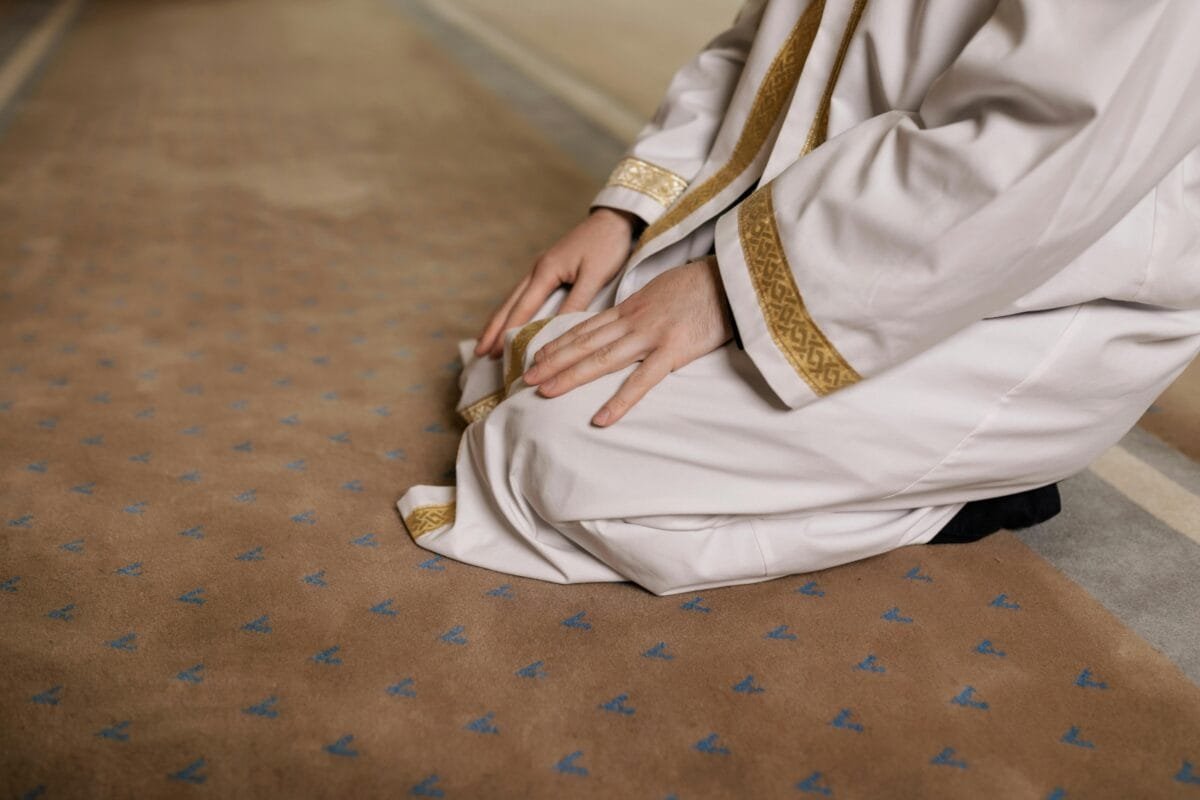
“Don’t Stop Dreaming”: A Syrian Youth’s Journey to Hope
The day was packed. My schedule at Westdeutsche Allgemeine Zeitung (WAZ) had me running across Herne to a neighborhood I had never been to before. I was heading to a community house that also functions as the local mosque and felt a little nervous, mostly curious, and, as always, was armed with my Notes app full of questions. I like to have a few prepared, just in case. You never know when a conversation stalls or takes a turn.
I’ve been inside a mosque before, once during a semester abroad in Istanbul. But back then, I was just one of many tourists behind a camera lens. This felt different. Here, I was meeting Ahmet—no cameras, no tour guides. Just him and me.
Ahmet welcomed me with a calm handshake. I took off my shoes before stepping onto the soft carpet of the prayer area, which also doubled as the main community space. He guided me through the kitchen, where trays of sweets waited for the next gathering, and into the washing space where members prepare for prayer. Then, he showed me his favorite room: the library. Floor-to-ceiling shelves filled with books on Islam, politics, history, and philosophy. A quiet, thoughtful space. It’s where he likes to study.
Ahmet’s Story: Escape, Loss, and a New Beginning
Ahmet is a Jugendleiter, a youth leader. He’s active in his community, supports the local Imam, helps organize food donations, and all this while preparing for his final exams. I knew he was from Syria. That was all I had been told. What I didn’t know was just how deeply his story would stay with me.
We sat down at the table and I hit record, with his permission. I asked him to tell me about his childhood.
He grew up in Syria until the war came too close. Around 2014, ISIS attacked his hometown. His mother, with him and his siblings, fled to Türkiye overnight. His father had already gone ahead to Europe where he was working. But life in Türkiye wasn’t the relief they’d hoped for. As Kurds, they faced discrimination. (For context: The Kurdish people are a stateless ethnic group spread across parts of Türkiye, Syria, Iraq, and Iran. In many places, they have long been marginalized politically and culturally.)
They struggled. Money ran out. His mother cared for five children alone. They thought about going back to Syria. But just as they were about to return, ISIS struck again. Armed men in military disguise raided Ahmet’s hometown and killed dozens. It was a massacre. Returning was no longer an option.
So, they left.
From Syria Across the Balkans to Germany
They boarded a packed boat to Greece. Walked from Macedonia to Serbia to Hungary, freezing at night. It was October 2015. Ahmet was just eight years old. He remembers it as an adventure through the lens of a child. Eventually, they reached Germany and settled in Herne.
As he spoke, I sat still, listening. I had goosebumps. Though I’ve never lived his reality, I could see it clearly through his words. The trust he placed in me—to record, to listen, to write—felt sacred. There’s something quietly powerful in the way someone shares the most vulnerable parts of their life. It’s not something I take for granted.
This is why I love reported profiles and deep interviews. They create a bond. For a moment, I’m allowed into someone’s world. And if I listen closely, I don’t just hear facts, I feel them.
After almost two hours, our interview ended. I thanked him. For his time. For his openness. For the weight of his words.
How Ahmet Inspires Hope Today
These conversations remind me why I’m in this field. They feel like soul-to-soul connections, more intimate than small talk, more honest than surface stories. I often leave them feeling full, touched, changed. Sometimes, it feels like a whispered secret was handed to me. It’s emotional work. And I love it.
Ahmet told me that throughout it all—war, flight, discrimination—he never stopped dreaming. It’s what his mother taught him:
“Dream, Ahmet. Dream big. Become someone who helps, who saves other people.”
Today, he wants to become a doctor. And I have no doubt he will.
When I asked what he’d tell his 8-year-old self today, he said:
“Don’t stop dreaming. Help other people. And don’t be selfish.”
I’ll carry those words with me. Into my next interview, my next story, my next headline. Because stories like Ahmet’s aren’t just worth telling. They’re worth remembering.
If you’ve ever opened your heart to a stranger—or told your story to a journalist—thank you. You are the reason I do this work. x
Photo: Alena Darmel via Pexels